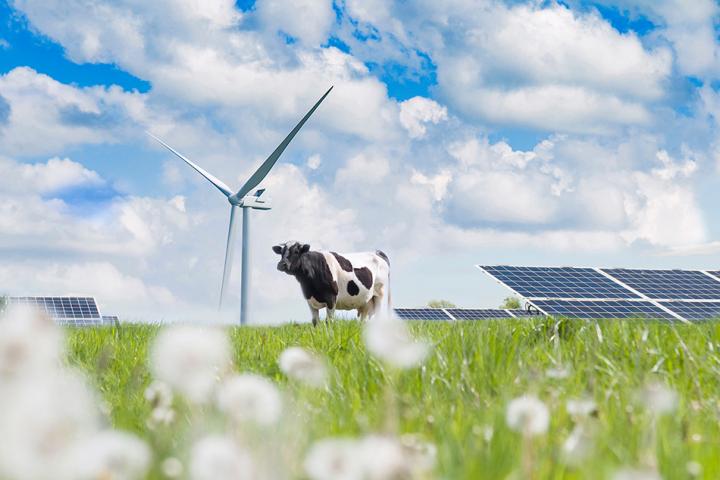Make hay while the sun shines: battery storage – a landowner’s opportunity

Oscar Wilde said the conversation about the weather was the last refuge of the unimaginative, while Bill Bryson noted that the most striking characteristic about British weather is that there isn’t much of it at all. As much as we love to complain about it, the UK’s geography means our unique weather puts us in a prime position to be at the forefront of the push for renewable energy.
We have reasonably consistent wind exposure, and even though it may feel like we don’t get a lot of sunshine, UK daylight hours, particularly in the summer, are sufficient for solar panels to generate energy (even without direct sunlight).
As far back as 1997, there has been a commitment from successive governments to reduce the UK’s impact on climate change. The key issue with renewable energy sources is that the wind rarely blows at the strength that you want it to, and the sun doesn’t always shine when you need the most power. Historically, demand was always carefully balanced with supply from power plants; who could forget the famed 8 pm power surge after Coronation Street when everyone in the north put the kettle on? The wind and sun don’t do as they are told. The solution to making renewables work is to store some of the energy for use at night or on days when it is neither sunny nor windy and to supplement that with steadier power solutions such as gas, oil, or coal-fired power stations or nuclear supplies.
An opportunity for landowners
Battery storage is the technical solution to allow for energy to be creamed off the National Grid when it’s running too hot and added back when it's running too cool. These adjustments are made automatically in real-time, responding to changes in the grid. Any landowner who has land near high-voltage power lines or substations has a potential opportunity to take advantage of this by installing battery storage and entering into agreements with the National Grid to provide that as a service. It works commercially by buying power from the grid when the grid is running too hot, and the power is cheaper, then selling it back to the grid when the grid is running cool and power is more expensive. The difference in unit price, less the costs of the storage and any loss in cable transmission is the landowner’s profit.
How does it work in practice?
The average landowner does not have the technical capabilities to set up this kind of scheme, and most commonly, there would be a specialist company involved to supply the batteries (which are each about the size of a shipping container), connect them up and deal with the necessary legal arrangements. What a landowner will typically do is enter into an option agreement with the power storage company stating that they will allow them the opportunity to lease the land for battery storage once they have satisfied certain conditions, typically planning consent and a connection to the National Grid. An option fee would generally then be paid to the owner together with all the owner’s legal costs.
Once the power company has jumped through the necessary hoops, they would serve notice and take the land, usually on a long-term lease for 30 years or more. An annual rent would be payable. For landowners, this can be a low-risk return on land that may be of limited use for farming and have no potential development value, for example, close to roads, railways, etc., coincidently usually where there are also power lines. Your land agents will generally have connections to suitable power companies, and it is worth discussing with them if you have land that might be suitable for this type of use. Solicitors would then be engaged to draw up the necessary option agreement, form of lease and any connection agreements and also to guide the matter through a planning process, advising landowners on any necessary planning agreements they would have to sign. Landowners would be well advised to seek an upfront option fee or, even better, an annual option fee as grid connection offers are currently taking a few years to process, and the land is tied up (although generally could still be farmed) under the option term and can’t be sold to anyone else.
If you have any land suitable for this use or if you are a land agent with clients who may be of interest, Muckle LLP would be delighted to advise you further. Get in touch with Richard Nixon on 0191 211 7934 or email [email protected]
